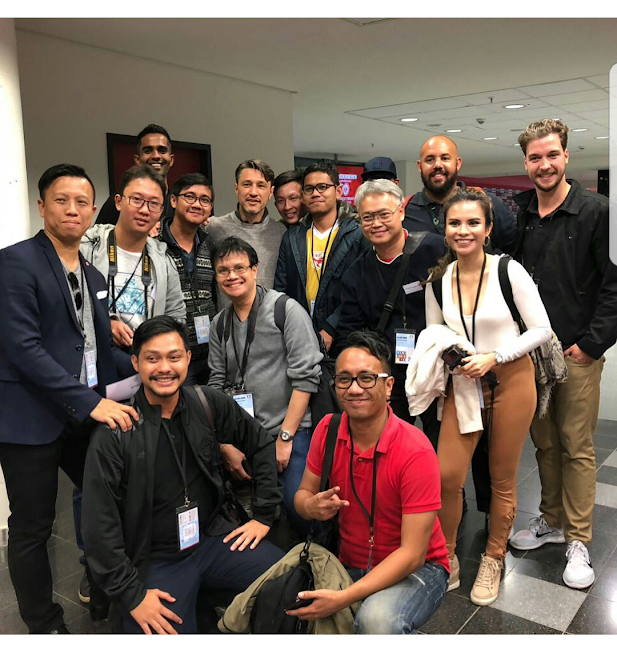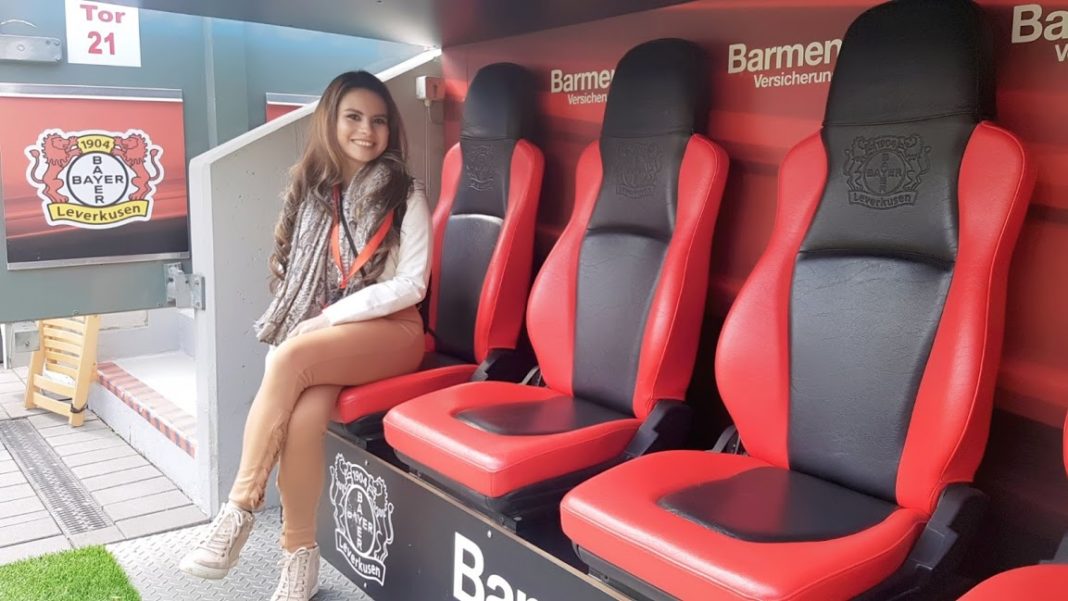In Germany recently with Bundesliga, Futbolita shares her experience about the German football culture. In Part 1, learn more about Leverkusen, their academy, and the league’s 50+1 rule.
As part of the tour itinerary, we visited BayArena, the official stadium of Bayer Leverkusen, and also dropped by their youth academy, where talents like Man City’s Leroy Sané have planted the seeds of their success.
In recent years, Leverkusen’s never-ending supply of talent have risen through the ranks of their academy. If there’s a club with enough talent to sustain themselves for the next few years, it’s Leverkusen, and with the Bundesliga’s investment and support towards youth development, there is no real need to spend exorbitant amounts on foreign players.
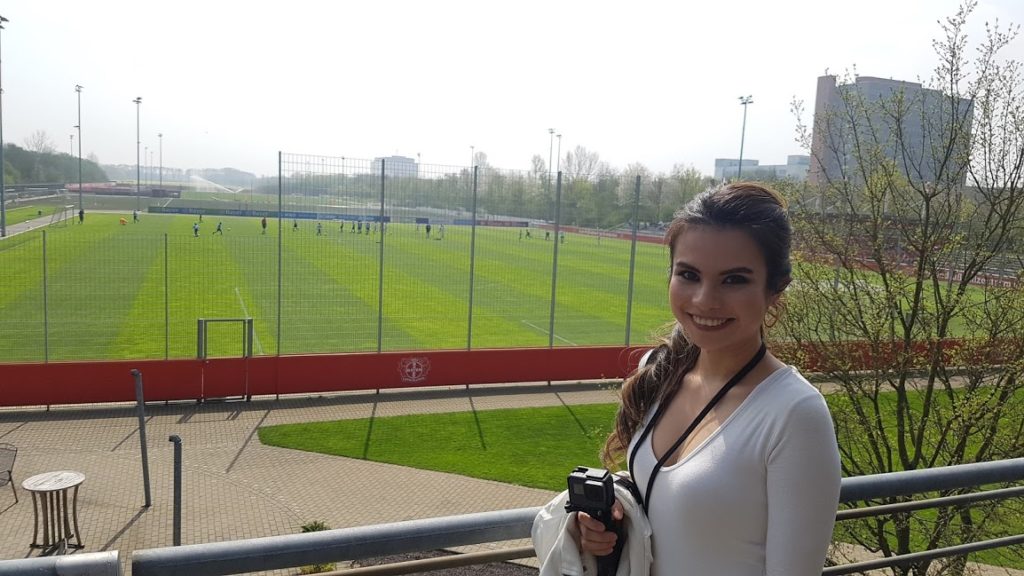
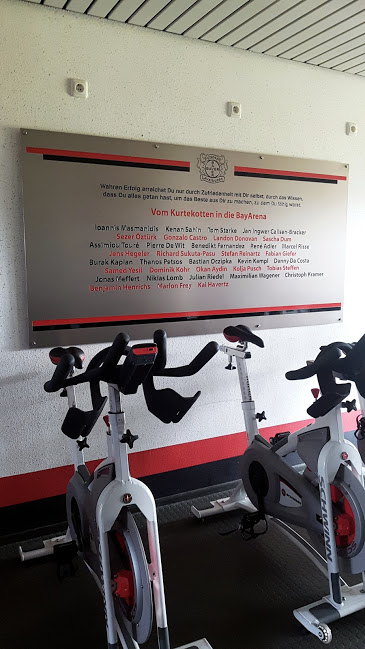
THE CLUB
Bayer Leverkusen is based in a relatively young city (founded in 1930), between Cologne and Dusseldorf, with a population of over 160,000. Interestingly, Leverkusen is also home to an industrial giant – the Bayer group – one of Germany’s most valuable companies by market capitalisation.
As a result, a majority of their fans who regularly turn up at the games are really the group’s employees – imagine how cool it is to be cheering at a football game with your colleagues whom you share a common history with?
STADIUM TOUR
Indeed, no visit to a football club would be complete without a stadium tour. The stunning BayArena has been modernised several times, with a capacity of 30,210. The open roof, which was re-constructed in 2007, gives an iconic view of the top. Although the stadium is one of the smaller venues in Germany, the fan atmosphere on match day is deafening.
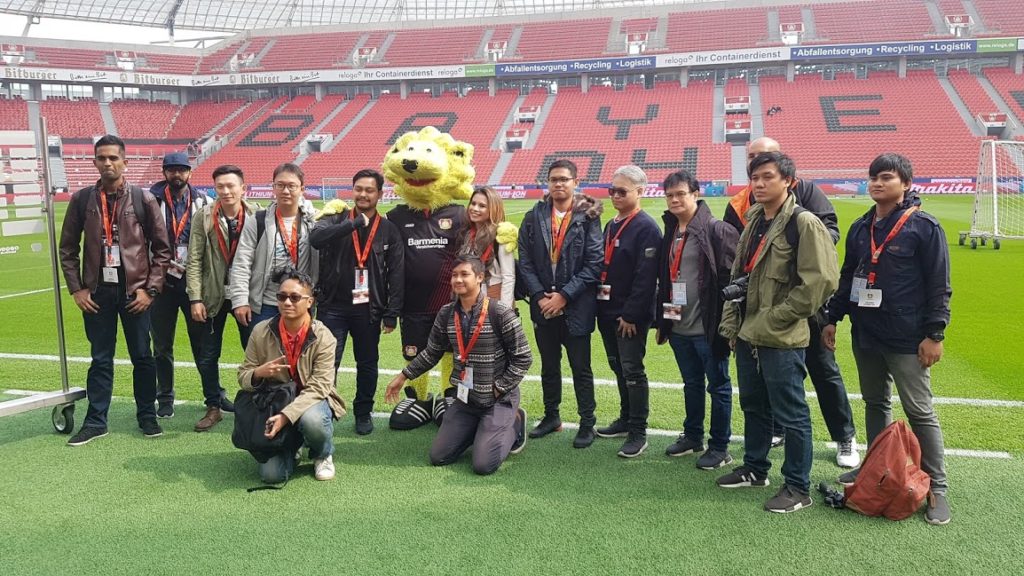
During the stadium tour, our tour guide reminded us several times about Bayer’s history and their reputation for coming in “second”.
After winning the German Cup in 1993 and the UEFA Cup in 1988, they are remembered in the history books for that elusive Champions League final in 2002 against Real Madrid. Who could forget Zizou’s wonder volley and camera cutaways of Ballack’s disappointed face after? Not us!

Bayer’s fans have more or less conceded that that Champions League final “defined” an era for them. With that said, many great players have walked into their dressing room, including Michael Ballack, Lucio, Arturo Vidal, Rudi Völler (whom we all met!), Dimitar Berbatov, Chicharito and Emerson.
MATCHDAY ATMOSPHERE
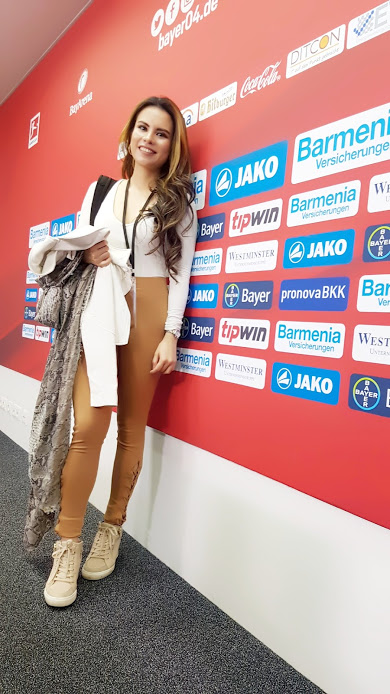
It’s no secret that the Bundesliga’s match day operations and atmosphere are unparalleled, and everything is planned meticulously to ensure the best fan experience. And having seen the degree of effort that clubs like Leverkusen put – from making sure the media get to eat well (yes, this is important too!), and that their fans are happy (yay to the 50+1 rule!), and ensuring security measures are planned to the very last detail, they have set the bar very high.
According to Bundesliga.com, clubs – and, by extension, the fans – hold a majority of their own voting rights. Under German Football League [DFL] rules, football clubs will not be allowed to play in the Bundesliga if commercial investors have more than a 49 percent stake. In essence, this means that private investors cannot take over clubs and potentially push through measures that prioritise profit over the wishes of supporters. The ruling simultaneously protects against reckless owners and safeguards the democratic customs of German clubs, which is why clubs in Bundesliga remain profitable year after year.
